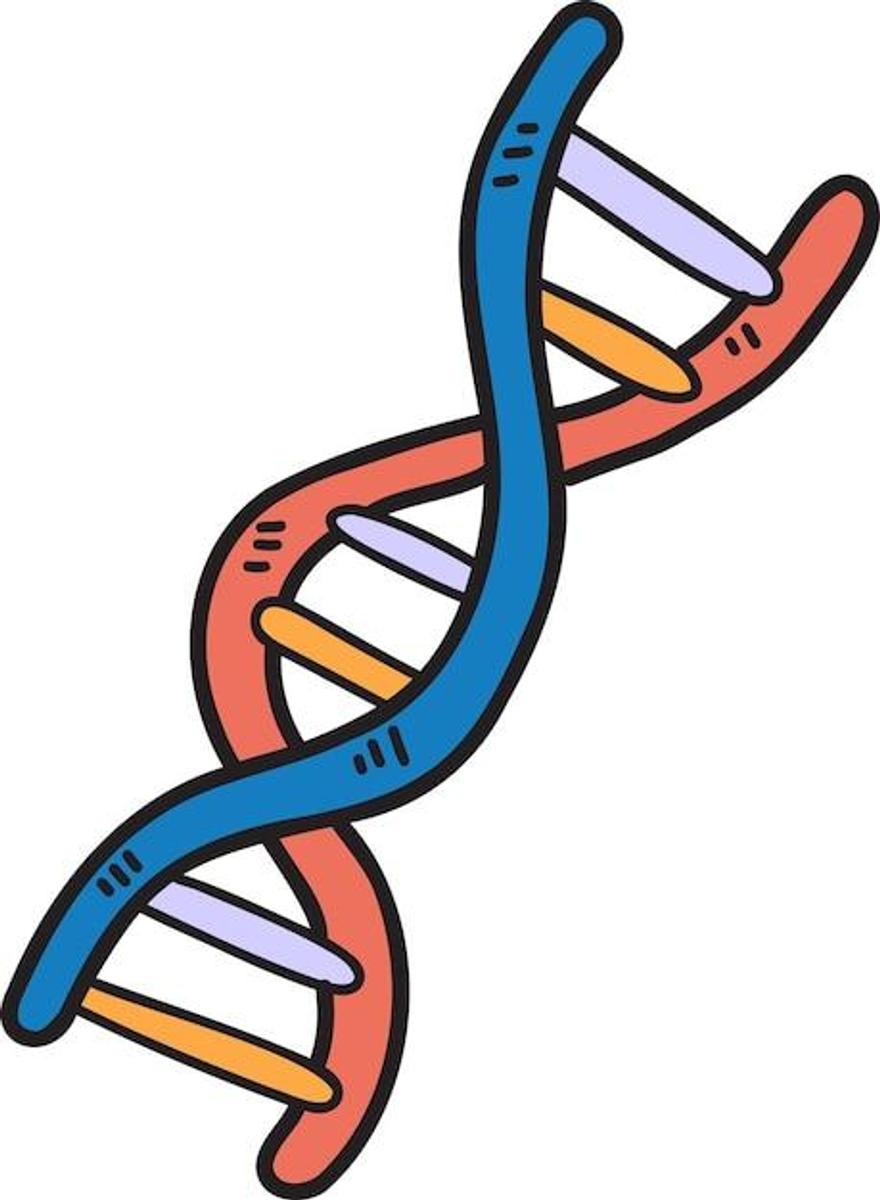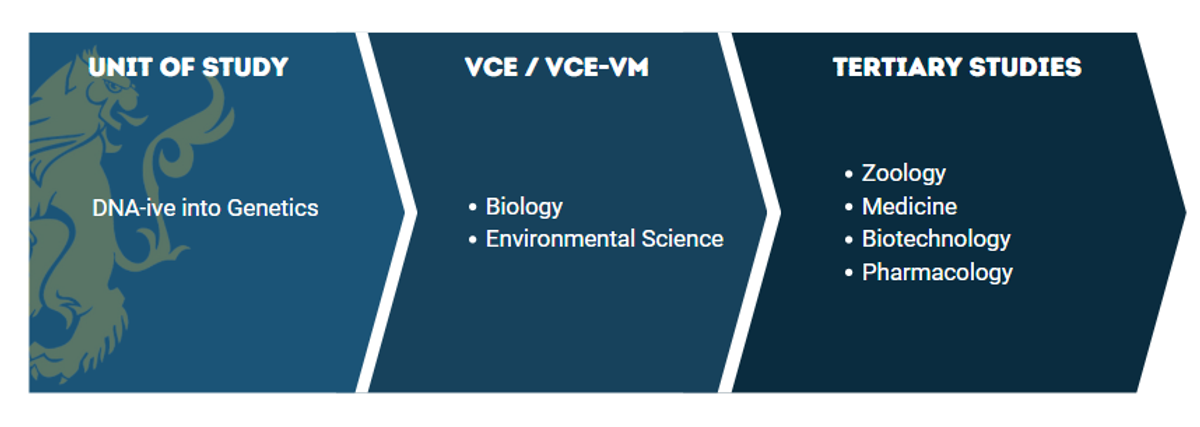Science - DNA-ive into Genetics

Subject Name: Science
Unit of Study: DNA-ive into Genetics
Brief Description: In this Science unit of study, students embark on an exciting journey to unlock the secrets of DNA and delve into the captivating world of genetics. Discover the building blocks of life as you explore the basics of cells, DNA structure, and function. Unravel the mysteries of inheritance and the role of genes through fascinating studies of pedigrees.
Investigate the causes and effects of genetic illnesses and stay up-to-date with the latest advancements in genetic research. Understand how species thrive in their habitats through remarkable adaptations. Learn about the revolutionary concepts of Darwin's theory of evolution, including natural selection and the overwhelming evidence supporting it. Engage in hands-on activities and captivating case studies, developing your critical thinking skills and fostering a profound appreciation for the natural world.
Join us in DNAive into genetics and embark on a double exploration that bridges the fascinating realms of genetics and evolution, igniting your passion for scientific inquiry and discover!
Scaffolding Learning
At the conclusion of this unit of study students will have:
An understanding of key knowledge
- Identify that DNA is made up of four nucleotide bases and codes for an organism's entire genome (VCSSU119)
- Investigate the transmission of heritable characteristics from one generation to another and that it involves DNA and Genes through the use of Punnett squares, dihybrid crosses, and Pedigree charts (VCSSU119)
- Evaluate how animals have adapted structurally, behaviourally or physiologically and how this impacts their ability to survive in their habitats (VCSSU120)
Attained these key skills
- Designing and constructing appropriate graphs to represent data and to look for trends and patterns (VCSIS137)
- Use knowledge to evaluate investigation conclusions, including assessing the approaches used to solve problems, critically analysing the validity of information obtained from primary and secondary sources, suggesting possible alternative explanations and describing specific ways to improve the quality of data (VCSIS139)
- Communicate scientific ideas (VCSIS140)
Demonstrated the Victorian curriculum standards and capabilities
- Science as a Human Endeavour
- Science understanding - biological sciences
- Science Inquiry skills
Assessment Tasks
Students will be required to complete the following assessment tasks:
- Practical Investigation Report
- Problem-Solving involving biological concepts
- Oral Presentation
Additional learning opportunities
- Practical Investigations
- Zoo Excursion
Resources
- N/A
Pathways
This unit of study could provide students with the following pathway.

